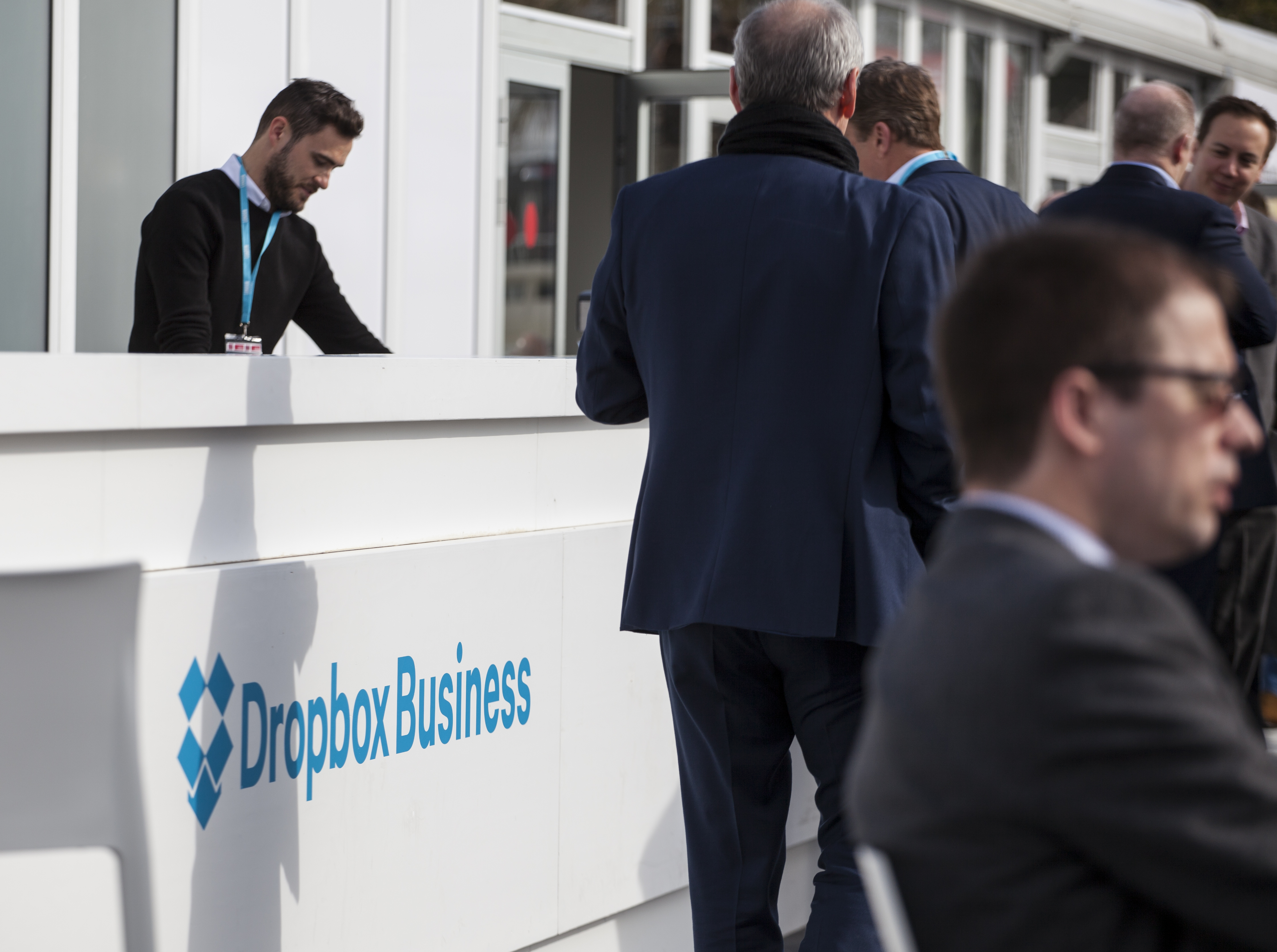Dropbox + Tengelmann Ventures

e-day, hosted by Tengelmann Ventures, and now in its seventh year, brings together hundreds of distinguished guests from what it describes as the ‘Old Economy’ and the ‘New Economy’. Its focus is sharp, concentrating on innovation, big data, and what it takes to grow a business in the retail sector of today and tomorrow.
In Germany alone, some analysts are predicting e-commerce to be worth in excess of 73 billion euros by 2020. As one of three keynote speakers –alongside Google and Facebook – it was a real privilege to be considered an influencer in such an important market.
My role at Dropbox is to analyse collaboration patterns and behaviours, to enable our customer-facing teams to work with companies and optimise the way Dropbox keeps teams in sync.
In transit to e-day at Mulheim an der Ruhr, I reflected on the role Dropbox plays in e-commerce. To date we find ourselves working with many retailers across Europe — such as Boots, Intersport, and adidas — enabling simpler solutions, catalysing better collaboration, and helping them keep their teams in sync.
While our customers are in many different industries, we do have a common challenge: we all want to make responsible use of our customer engagement data. After all, companies that can manage and derive insights from vast amounts of data have a real competitive advantage.
Information has always been a critical foundation for business growth. Managing and curating it properly helps people collaborate on Dropbox more easily, and understanding how they use Dropbox ensures we can keep building features and products our users want to use, and have productive conversations with the customers we are most likely to be able to work with.
Fashion label Zara is a great case example of a business managing its employee and customer feedback to build sales.
Recently, at the Ovum Industry Congress, we learned that Zara runs its production line at about 80% capacity, using real-time feedback from stores to find out what people are actually buying. As a result of customer purchasing patterns on the shop floor, the extra space on the production line (20%) is used to make up new lines that can be sent out to stores in just three weeks.
Zara is using real-time feedback on customer buying habits – communicated through in-store employees and demand signals captured at each store when a purchase is made – to deliver their customers exactly what they want, when they want it.
That’s a great example of how understanding your usage data helps you maintain and augment profitability and success in your business. The key principles are visibility and accountability. A company’s data is of paramount importance (and often its most valuable asset), so companies need to make sure their employees have immediate access to the right information, but also that they can keep track of what’s being done with it.
They also want the peace of mind of knowing that all possible versions of their files are secure and backed up, yet also discoverable, searchable, and accessible wherever necessary. As content is increasingly scattered and businesses have ever-increasing quantities of the data, forward-leaning companies are turning to the cloud to ensure all their information is in one place.
My presentation led to some really insightful conversations, and after the event, we were asked numerous questions on how Dropbox, and the cloud, can help e-commerce businesses to have better visibility of their data. Of course everyone’s situation is different, but the fundamental requirements for data are the same: discovery, security, analysis, and iteration.
I’m looking forward to continuing the conversations I started in Germany, and would be delighted to hear from you if you’re interested in finding out if Dropbox could help you on your data journey. I’m always up for a chat, so drop me a message at EuropeBlogs@dropbox.com.




